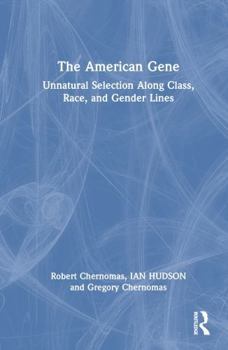The American Gene: Unnatural Selection Along Class, Race, and Gender Lines
Biological justification for all forms of inequality has a long history, with the claim that particular groups suffer disproportionately from inherited flaws of ability and character used to explain a remarkably wide variety of inequalities.
Providing an important critique of that biodeterminist history and how the Human Genome Project has inspired some contemporary scientists and economists to follow a similar path of ascribing socioeconomic outcomes to genetic inheritance, The American Gene details new research that suggests that the social and economic environment can affect how genes express themselves in specific human traits and social outcomes. Using the three cases of the American white working class, Black Americans and American women, the authors demonstrate that relying on nature as an explanation is seriously flawed - showing that the socioeconomic inheritance created by the conditions in which these populations worked and lived offer a far better explanation than nature for the stratified results.
This book is the story of an American history rife with unnecessary misery and the waste of human potential, along with the liberating effect of understanding the degree to which its citizens are the product of social inheritance and the potential power of a nurturing economy and society that equality promises.





